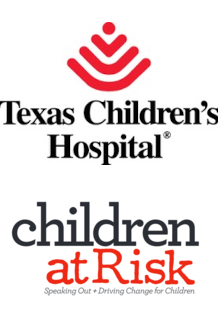Abstract
Parents who adopt children from the U.S. foster care system typically do so with assurances from the state that postadoption services will be accessible by the family, if needed, after the adoption is finalized. From the state’s perspective, the foremost purpose of these services is to ensure that the family remains intact, thereby avoiding adoption dissolution—a traumatic and costly outcome whereby the child is returned to state custody. This study looks specifically at underserved adoptive families—those who report needing specific services after adoption finalization, yet who are then unable to access these needed services through the state because of various barriers. Data for the study came from the 2012 U.S. National Adoptive Families Study, an online survey of adoptive parents (N=437) who have adopted at least 1 child from the U.S. foster care system. The data show that specific demographic groups are disproportionately represented among underserved adoptive families, and that certain critically needed postadoption services are rarely rendered by the state. The results also suggest that particular state practices and policies systematically lead to higher rates of underserved adoptive families.
Key Take Away Points
- Nearly 60% of adoptive families in the sample are considered underserved.
- Non-White adoptive families were more likely to be underserved.
- Adoptive families adopting older children were more likely to be underserved.
- Kinship adoptive families were more likely to be underserved.
- Respite care is a high unmet need for adoptive families.
- When adoptive families experienced postadoption services as "not helpful" the first time, they are less likely to return for needed services.
Author Biography
Robin M. Hartinger-Saunders is an Assistant Professor in The School of Social Work, Andrew Young School of Policy Studies at Georgia State University in Atlanta, Georgia. Dr. Saunders graduated from the State University of New York at Fredonia in 1993 with a B.A. in Sociology. She obtained her Masters in Social Work (MSW) in 1997 and her PhD in 2008 from the University at Buffalo. She had over ten years of practice experience prior to teaching. She worked for the Chautauqua County Department of Social Services (DSS) in New York State. Her work in the child welfare field includes prevention, foster care, adoption, and juvenile crime/violence. Dr. Hartinger-Saunders has extensive experience collaborating with community organizations to improve outcomes for children and youth. Her broad research interests include child welfare, child maltreatment, and youth violence. More specifically her interests include exploring the emotional, social, psychological, and familial experiences of adoptive families who adopt within the child welfare system; exploring family, peer and neighborhood factors that effect victimization and offending among youth; and the use of technology in social work education and practice. Alex R. Trouteaud is an Affiliate Faculty member at Georgia State University in the Sociology Department and the Executive Director of youthSpark in Atlanta, Georgia. He received his Ph.D. in Applied Sociology from Baylor University in 2005.
Recommended Citation
Hartinger-Saunders, Robin M. Ph.D. and Trouteaud, Alex R. Ph.D.
(2015)
"Underserved Adoptive Families: Disparities in Postadoption Access to Information, Resources, and Services,"
Journal of Family Strengths: Vol. 15:
Iss.
1, Article 6.
DOI: https://doi.org/10.58464/2168-670X.1258
Available at:
https://digitalcommons.library.tmc.edu/jfs/vol15/iss1/6


